News
Asian food brands embrace upcycled ingredients
10 May 2023
A growing number of Asian food and drink brands are using upcycled ingredients, such as soy okara, banana stems, and broken rice, as a source of sustainable nutrition for their products.
The rise in upcycling ingredients in the food and beverage industry has been met with significant consumer buy-in that extends beyond sustainability and minimising food waste.
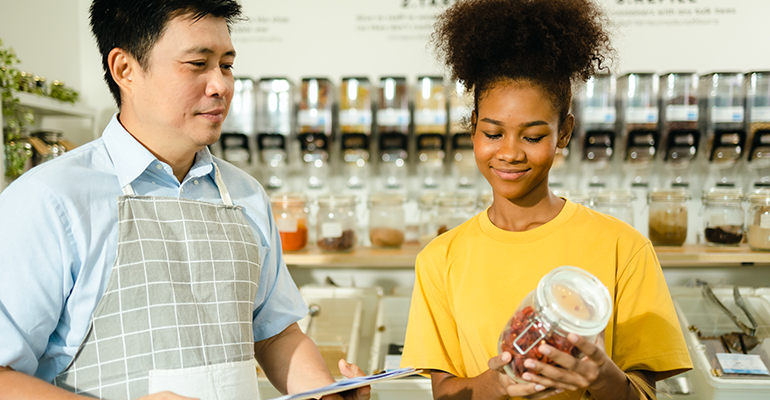
Upcycling, defined as the use of ingredients that would not have otherwise been fit for human consumption, has opened up a variety of underutilised income streams that find uses for spent grain, banana stems, coconut husks and damaged mangoes.
The movement has particularly gathered momentum in the Asia Pacific (APAC) region where a white paper, produced by Future Food Asia (FFA), predicts a spate of public and private food upcycling initiatives, intent on capitalising on the industrial agrifood waste opportunity.
“It will become socially unacceptable to waste so much food,” said FFA organiser Isabelle Decitre. “The most rationally minded people are the food manufacturers and agriculture operators. They see a lever to improve the efficiency of their operations.
“Consumer food waste is a trickier challenge to mobilise the energies around, and here regulations and government incentives will have to come into play,” added Decitre, who is also CEO of ID Capital, an investment and advisory company based in Singapore.
South Korea’s CJ CheilJedang uses broken rice; Singapore’s SoiLab’s uses okara
South Korean food giant CJ CheilJedang makes Excycle Basak Chips using broken rice and soybean curds, these by-products generated during the food-manufacturing process would have been discarded otherwise.
Australian upcycling firm Nutri V recently launched Nutri V goodies, a range of puffed snacks that uses farm waste and vegetable powders to provide the products with a favourable nutrition profile.
Singapore food tech firm SoiLabs revealed last month that it would launch a series of products made from soy waste (okara) partnering with Sanyo Chemical in the process to speed up commercialisation of upcycled foods in Japan.
SoiLabs’ main point of focus is its okara conversion technology that creates a protein-rich intermediate, known as Soi-X that can be utilised in plant-based cheese products.
Big food firms take the lead in upcycling ingredient use
Upcycled ingredients can be a good source of nutrients.
“Insufficient fibre intake is associated with a higher risk of heart disease and diabetes, two of the most common diseases in the United States,” said Daniel Kurzrock, CEO and co-founder of Upcycled Foods, the firm behind ReGrained SuperGrain+, the ingredient used in the collaborations with Kerry and The California Cereal Product.
“ReGrained SuperGrain+ is made from grains that have already had their sugars extracted to make beer, known as "brewer's spent grain," and contains very low levels of gluten.
“This brewing process concentrates valuable nutrients, allowing us to unlock high levels of fibre and protein by upcycling.
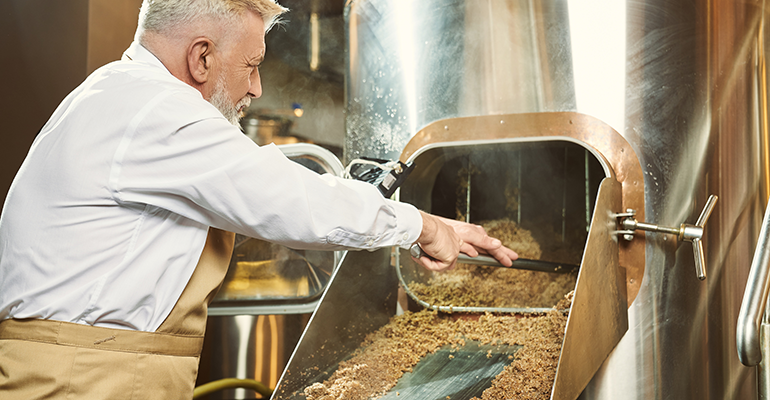 Pictured: Brewery worker getting spent grain with shovel © AdobeStock/serhiibobyk
Pictured: Brewery worker getting spent grain with shovel © AdobeStock/serhiibobyk
“ReGrained SuperGrain+ has 3.5 times the dietary fibre and 2 times the plant protein of whole grain and white flours. It's also a source of prebiotic dietary fibre, which supports healthy digestion.”
US product launch: ReGrained and Kroger launch first upcycled breads
ReGrained collaborated last month with US retail company Kroger to develop its upcycled bread line as part of its Simple Truth store brand.
The new Simple Truth upcycled items – Seeded Multigrain Bread and Multigrain Quinoa Bread – both contain 10% of ReGrained SuperGrain+, and are now available across the US in stores carrying the retail banners of The Kroger Co.
“We love the breads that Kroger’s Simple Truth private label brand commercialised and feel that these first two [stock keeping units] SKUs beautifully showcase the unique benefits of our flagship upcycled ingredient,” Kurzrock said.
“Upcycled ingredient innovation is one of the most actionable solutions for food brands to be more sustainable.
“We are thrilled to help catalyse Kroger’s efforts to bring their Zero Hunger and Zero Waste commitment to life on store shelves,” he added.
“These breads win against category incumbents on flavour alone—giving consumers an accessible opportunity to make an impact with every purchase.”
Related news

Oat Barista: Innovation for game-changing beverages
20 Nov 2025
Oat Barista is a clean label, sustainable, and innovative drink base specifically designed to create the perfect foam in one single ingredient.
Read more
How younger consumers are redefining ingredient choices and rejecting brand loyalty
18 Nov 2025
Gen Z and millennial consumers’ preferences for transparency, functionality, and purpose are “redefining the very nature of consumption itself”, says SPINS.
Read more
Hybrid formats and flexible positioning to disrupt category norms in 2026
17 Nov 2025
Trend forecasters expect food and drink to move more fluidly across occasions, functions, and formats as consumers seek versatility, novelty, and convenience.
Read more
Danone highlights digestive health as potential ‘tipping point’ for food industry
13 Nov 2025
Danone is betting on a food industry “tipping point” that will bloat the market for healthy products, particularly those related to gut health.
Read more
New UPF standard hoped to offer consumers ‘coherence and clarity’
10 Nov 2025
Ingredients companies are being urged to enter “a new era of partnership and innovation” following the launch of the industry’s first non-UPF verification scheme.
Read more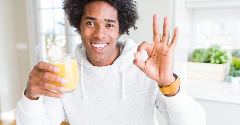
Faravelli at Fi Europe: Showcasing FARA® functional solutions for food and nutra
28 Oct 2025
At Fi Europe 2025 in Paris (stand 72M39), Faravelli showcases FARA® Customized Functional Solutions and a wide ingredient portfolio for food and nutra – delivering quality, innovation, and expertise.
Read more
Agrigum Redefined FIBER
27 Oct 2025
Agrigum has transformed gum acacia into a natural, science-backed fibre that supports gut health, sustainability, and innovation across global food and nutrition applications.
Read more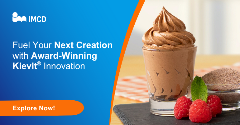
Expanding boundaries in food & beverage innovation
23 Oct 2025
IMCD and FrieslandCampina Professional expand partnership to deliver Kievit® across EMEA, enabling brands to enhance quality and accelerate time-to-market for tomorrow’s food & beverage creations.
Read more
Amazon Grocery launch aims to balance quality with affordability
22 Oct 2025
Global e-commerce giant Amazon has introduced a new private-label food brand, combining existing Amazon Fresh and Happy Belly products with new everyday items.
Read more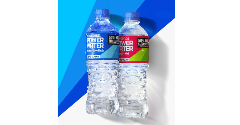
Powerade enters hydration space with launch of Power Water
21 Oct 2025
Coca-Cola’s Powerade brand has launched a zero-sugar, electrolyte-enhanced functional water, marking the brand's entry into the hydration space.
Read more